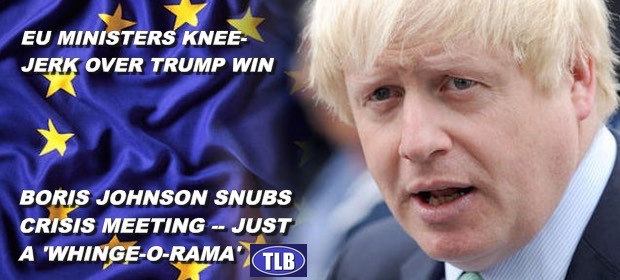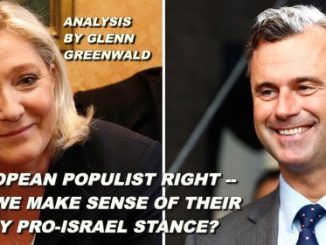
EU foreign ministers discuss Trump fallout
NIKOLAJ NIELSEN
EU foreign ministers over the weekend discussed US relations amid fears president-elect Donald Trump will unwind America’s previous global commitments.
The crisis meeting in Brussels on Sunday (13 November) was called in the wake of Trump’s surprise victory and ahead of a regular ministers’ meeting on Monday.

EU foreign policy chief Mogherini (c) invited EU foreign ministers to discuss US relations (Photo: The European Union)
The US election outcome appears to have emboldened anti-establishment movements in Europe and sowed doubt over a broad range of previous US accords on climate change, NATO mutual defence, and the nuclear non-proliferation deal with Iran.
EU foreign policy chief Federica Mogherini said after Sunday’s dinner that “values, principles, interests” will continue to form the basis of the transatlantic partnership.
“We are looking forward to a very strong partnership with the next administration,” she said.
But Boris Johnson, the UK’s foreign minister, did not attend. France’s Jean-Marc Ayrault sent an envoy due to a scheduling conflict. Hungary’s pro-Trump prime minister Viktor Orban also kept his top foreign envoy at home.
EU leaders are worried the US will weaken NATO, given Trump’s campaign threats to not defend alliance members who don’t pay their dues. The possibility has piled on additional pressure for EU states to budget at least 2 percent of their GDP on military spending as required under NATO rules.
“The United States currently accounts for almost 70 percent of NATO defence spending, and has rightly called for a more equitable sharing of the burden,” said Nato chief Jens Stoltenberg in an opinion article in The Observer ahead of the ministerial meeting.
The Trump fallout and UK plans to the leave the European Union have also spurred talks of forming a military union among the remaining EU states.
Last week, Germany’s defence minister Ursula von der Leyen urged Europeans to find the political will for more security policy.
Trump’s overtures towards Russia could imperil economic sanctions against a nation that recently annexed the Crimea in Ukraine. The Kremlin is already drawing parallels on issues that align with a US presidential administration under Trump.
Vyacheslav Volodin, the speaker of the Russian parliament, on Sunday told Russian television that a Trump presidency could “radically change” relations between the two nations.
Mogherini maintained that the EU stand on the Russian annexation is not going to change, “regardless of possible shifts in others’ policies”.
Iran and climate change
Trump has also threatened to scrap the nuclear deal with Iran and repeal a Paris climate agreement to cut greenhouse gas emissions. Trump’s transition team is reportedly drawing up plans to withdraw from the climate pact.
CONTINUE READING HERE
ER recommends other articles by EUobserver
About the author
Nikolaj Nielsen is a regular contributor to EUobserver
 Find out about our great (WOW) TLB Project Membership package and benefits, add your voice and help us to change the world!
Find out about our great (WOW) TLB Project Membership package and benefits, add your voice and help us to change the world!




